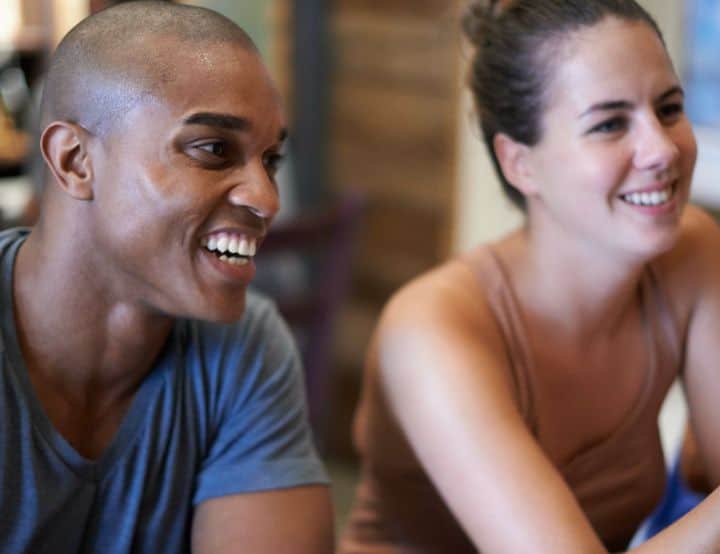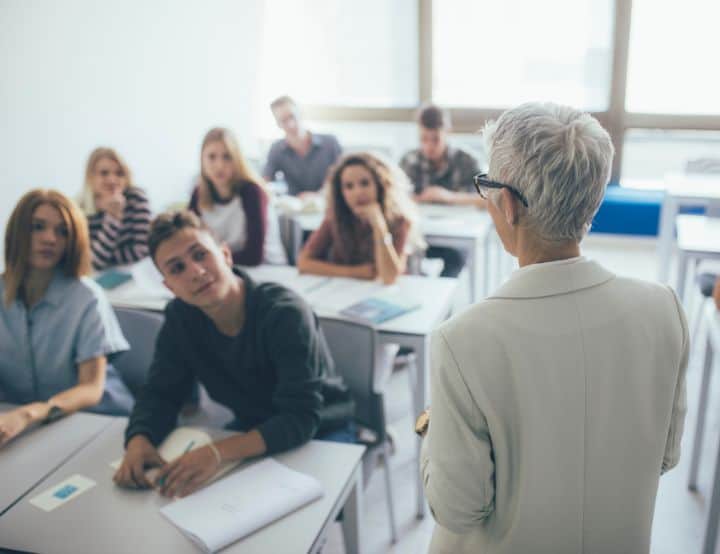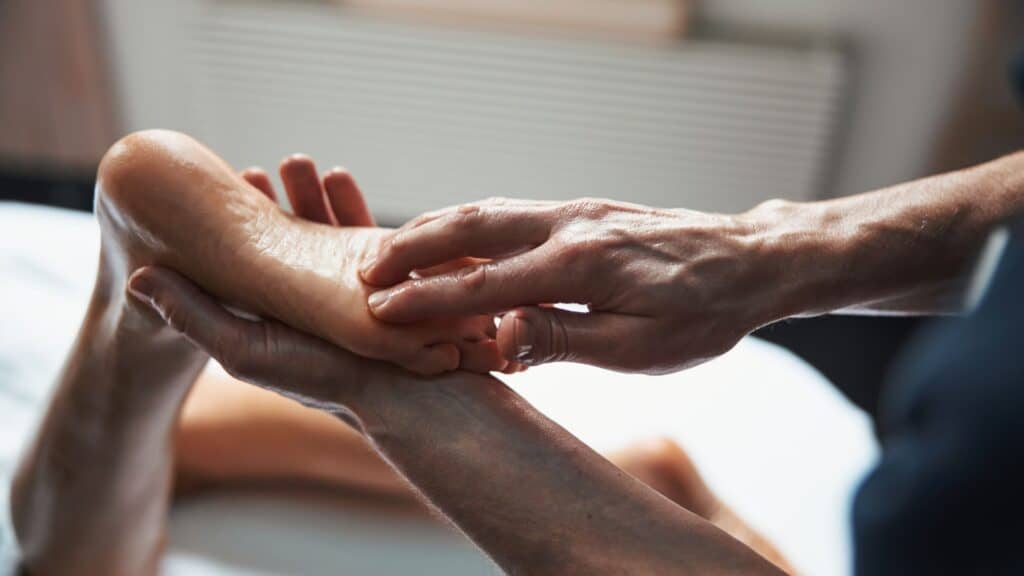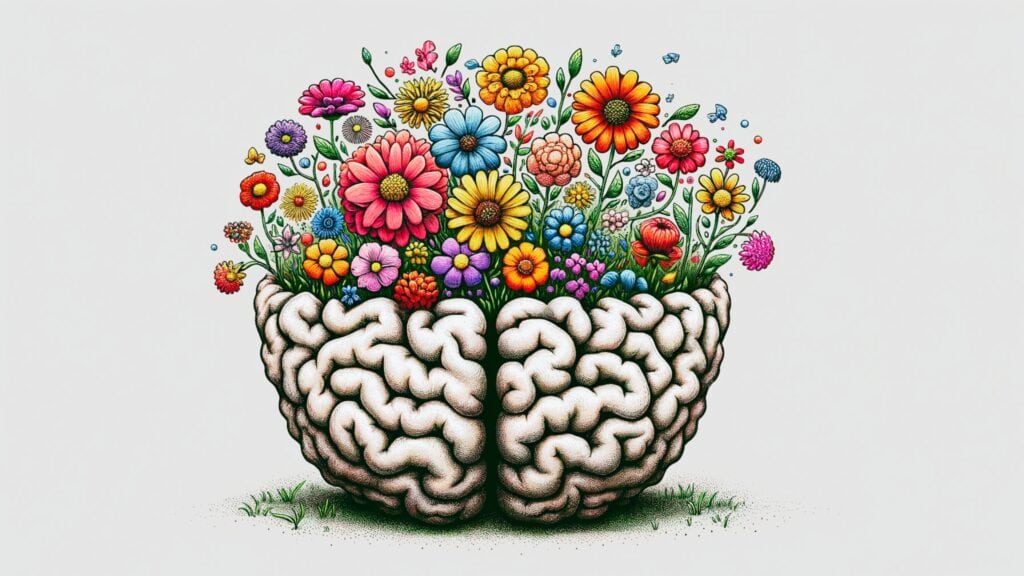Resources for Massage Therapy Educators
Massage Classroom Coach
Massage Classroom Coach is a growing collection of complementary resources and continuing education for massage educators, created by Anne Williams. Inspired by a lifelong commitment to massage therapy education, learning science, and instructional design, this platform supports instructors with thoughtful tools and practical guidance that make teaching clearer, more effective, and more enjoyable for both educators and students.
featured NOW!
Check out active learning resources!
Learning Beyond the Lecture: Active Learning Strategies for Massage Classrooms
Many educators rely on lectures to convey information clearly and efficiently. While lectures can introduce new concepts, learning deepens only when students actively work with what they’ve heard. Research in adult education consistently shows that understanding strengthens through retrieval, discussion, application, reflection, and meaningful connection. Active learning bridges the gap between knowing and using information, especially in hands-on fields like massage education, where theory must translate into practice. This article introduces practical, instructor-friendly active learning strategies that can be integrated without overhauling your curriculum. Each section highlights a specific approach and links to ready-to-use activities. Whether you’re teaching ethics, anatomy, technique, or clinical reasoning, these strategies help students organize knowledge, strengthen memory, and engage more fully with their learning journey.
1.5 Hours of NCBTMB-Approved CE
Supporting the Neurodiverse Student
In every classroom, there are learners who think, process, and engage with the world in unique ways. These neurodivergent students bring diverse strengths and challenges to their educational experiences and understanding how to support them is essential for creating safe and inclusive learning environments. In this session, we’ll discuss the core messages of the neurodiversity movement to better understand and support neurodivergent people. Next, we’ll talk about the best ways to get individualized support to students who need it. The final half of the course looks at instructional strategies for creating inclusive classrooms. These methods are critical for neurodivergent students and support learning for everyone else. Recently, Anne presented this content at the 2025 ABMP School Forum and received an enthusiastic response. Here Anne shares her presentation and handout as an online course with CE hours for those who wish to obtain continuing education credit.
1 Hour of NCBTMB-Approved CE (Free)
Public Speaking Essentials for Massage Instructors
Seasoned presenters make it look effortless with clear structure, easy humor, and confident delivery that keeps audiences engaged. For many instructors, though, public speaking feels anything but natural. This course breaks down the essentials of effective presentation skills and shows how confidence is built through practice, not personality. You’ll learn practical strategies to organize content, manage nerves, and project a dynamic presence, whether you’re teaching in a classroom, leading a CE workshop, or presenting at a massage conference.
Use this guide for lesson planning!
A Teacher's Guide to Asking the Right Questions
Great discussions are the backbone of effective peer learning, and they begin with strong instructor questions. The questions you ask can turn class time into an engaging exchange, or a missed opportunity. Thoughtful questioning helps learners synthesize ideas, explore perspectives, and collaborate toward meaningful conclusions. This guide outlines question types to avoid and those that spark productive discussion. Bookmark it as a planning resource to help you choose questions that strengthen participation, deepen understanding, and support active learning.
1.5 Hours of NCBTMB-Approved CE (Free)
Client Assessment in Massage Education with Whitney Lowe
When it comes to client assessment, what should schools teach? What knowledge and skills should graduates demonstrate, and what resources do instructors need? Are robust assessment skills still necessary in the current massage therapy environment and what about all these special tests? These are some of the questions we explore through a video conversation with Whitney Lowe and the results of the Massage Classroom Coach Assessment Survey. Join the discussion and share your thoughts. Earn 1.5 NCBTMB-approved CE hours when you pass an 8-question multiple-choice quiz.
2 Hours NCBTMB-Approved CE (Free)
40 Activities to Anchor Student Learning
Many educators put great effort into lessons yet forget to formally anchor learning at the end. Without closure, content remains unorganized in memory and quickly fades. This online course teaches practical strategies to energize classrooms and strengthen recall. Students actively think, collaborate, and build personal meaning instead of passively listening. You’ll watch a beautifully designed video, then explore 40+ ready-to-use activities with clear directions and worksheets, while earning 2 NCBTMB-approved CE hours and expanding your teaching toolbox for modern adult learners.
Available Now!
The Classroom Hack That Instantly Improves Student Engagement
Motivating adult learners can be challenging. You put time and effort into your curriculum only to see them sneaking a look at emails on their phones or nodding off in the corner. This activity checks all the boxes for strategies that engage adults. It is easy to implement in a variety of subject areas and improves critical thinking while encouraging a supportive learning environment. Read the blog and download the activity directions.
1 Hour NCBTMB-Approved CE (Free)
Priming: The Education Game Changer
As a classroom strategy, priming refers to the intentional actions and methods educators use at the beginning of a lesson to prepare and engage students for learning. The aim is to create receptive mindsets that enhance knowledge acquisition and understanding. Priming reduces student anxiety, taps into students’ prior knowledge, sparks curiosity, and provides context for new learning. In this popular multimedia online course, you’ll explore practical and effective methods for priming student learning. Find out more information and register now!
Available Now!
Harnessing the Power of Rubrics for Hands-On Skill Learning
When you work with massage teachers, you often hear a similar story. Instructors teaching later modules or terms report that different cohorts of students trained by different instructors demonstrate dissimilar foundational skills. One group has strong draping skills but forgets to use bolsters, while another group can’t put together a Swedish massage but knows how to use active isolated stretches (which aren’t taught in the curriculum). Rubrics are the key to skill consistency because they outline the performance criteria for techniques based on objective measures. Are you describing hands-on methods objectively? Read this article and drop the subjectivity. Your students (and the instructors teaching in subsequent terms) will thank you!
1 Hour NCBTMB-Approved CE (Free)
Better Thinking, Better Learning, Better World
Today’s students are mired in survival thinking. Their thought lives revolve around dealing with immediate challenges, and they’re burned out, overwhelmed, struggling to make ends meet, and constantly distracted by technology. In this video-based online course (1 hour NCBTMB-approved CE), originally presented at the ABMP School Forum in 2023, we examine new strategies to end student survival thinking and improve the clarity of our own thinking processes. Our goal is to revitalize our thinking, our classrooms, and our schools. Once you register, you’ll have ongoing access to this course on your school or professional dashboard.
Available Now!
When Students Don't Seem to Care
Most of us have experienced frustration when our students don’t seem to care about their coursework. It’s mind-boggling – even heartbreaking – that they signed up and paid tuition and now seem resistant and disinterested. In this session, I talk with psychotherapist Anthony Riske about student motivation. Anthony uses Motivational Interviewing as a lens through which to view and understand student resistance and ambivalence. He offers communication tools that help us engage students more effectively to guide them toward their broader goals and values.
Available Now!
Student Guidelines for Online Communication
If your students use social media or online platforms for coursework, peer discussion, or projects, you’ll want to provide clear guidelines for engaging safely and professionally. We did a deep dive into best practices for guiding students and developed this handout. Download the handout, print it, and distribute it to students as it is, or use it as a model to develop your own guidelines. Don’t want to waste paper? Link your students to the digital guide.





















